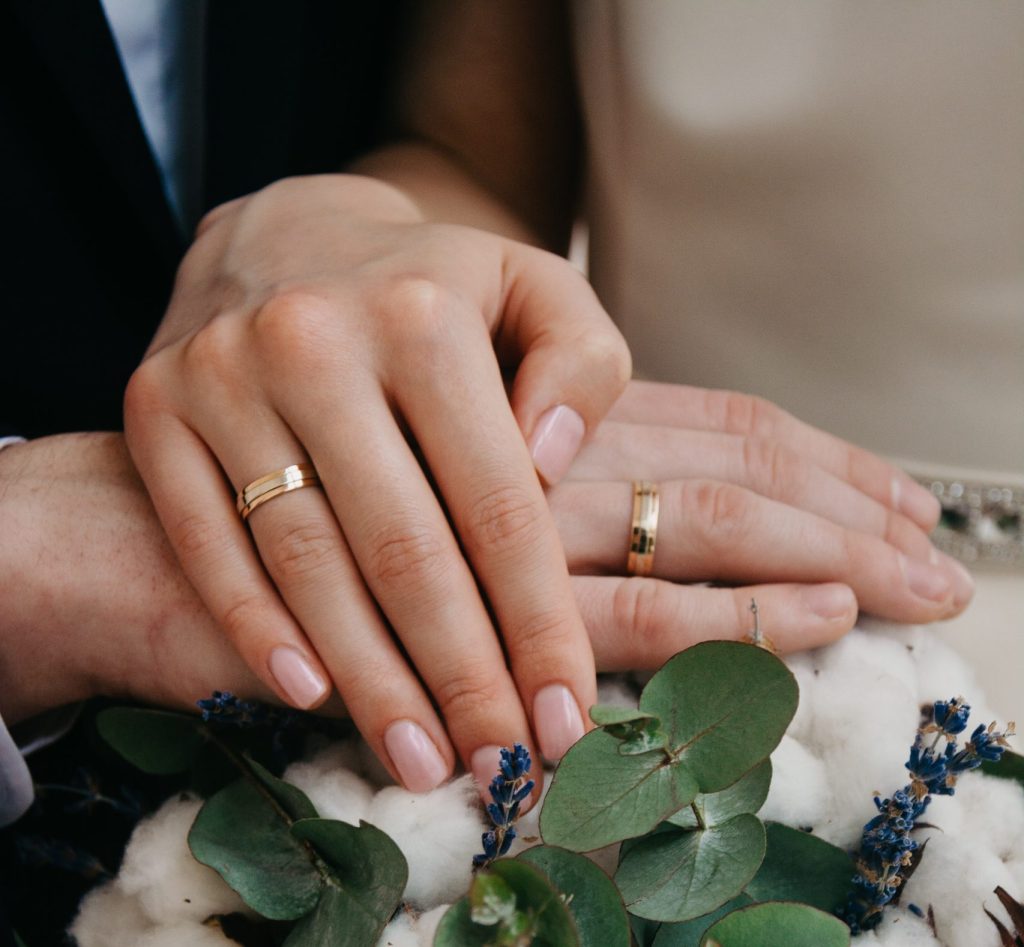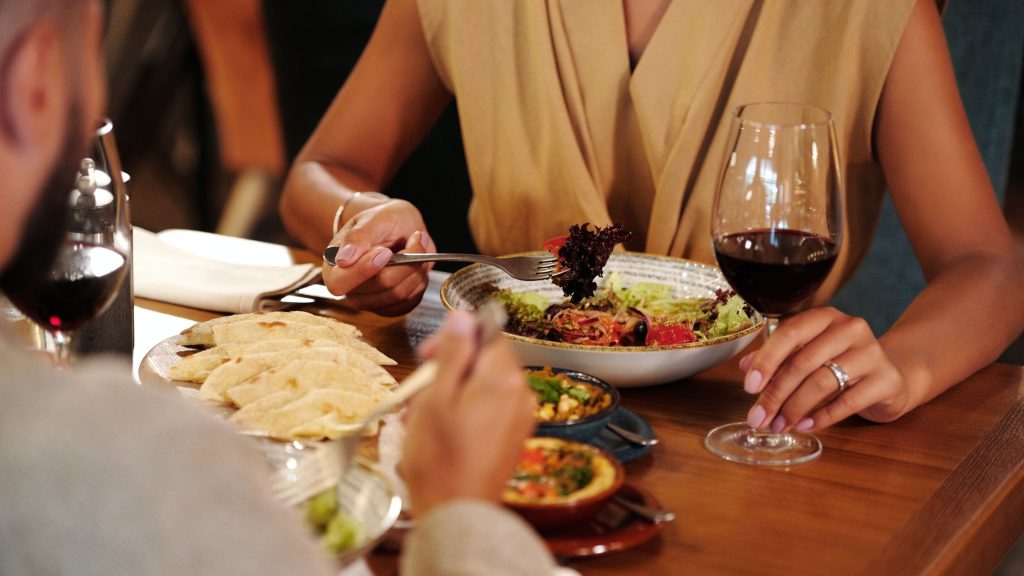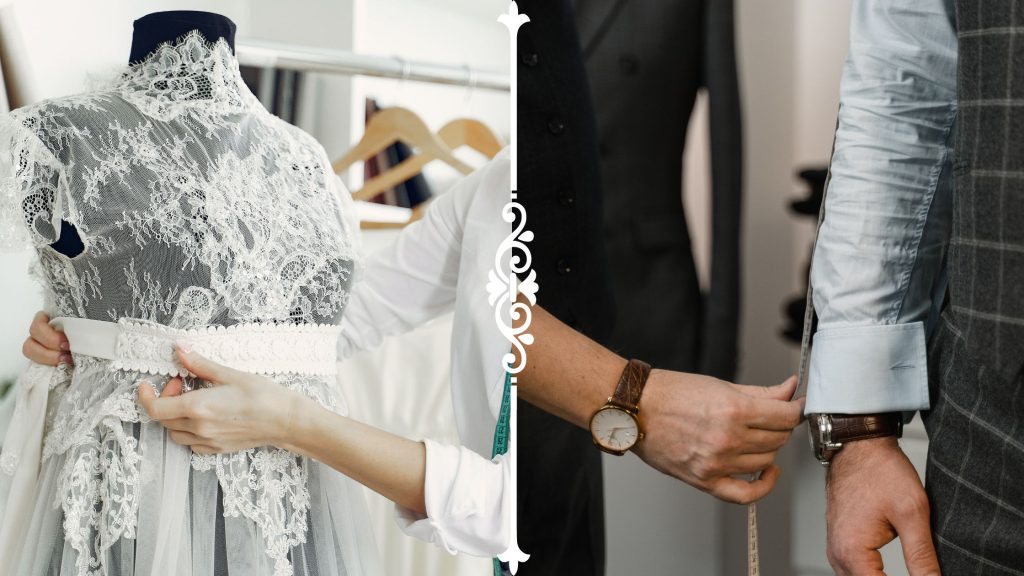
Many couples suffer from sudden weight gain after marriage. It doesn’t matter if you’re a man or a woman. Research has shown both genders, generally, do gain a significant amount of weight after marriage. Now with that out of the way, what is the cause that is leading you towards gaining all the extra weight and can you do to change that?

Change in Habits & increased appetite
One of the most common causes of weight gain, whether it is after or before marriage, aside from hormonal changes, is increased appetite. However, as far as after marriage. Change in eating habits is one of the biggest causes of weight gain after marriage. When someone is single, they usually eat whatever they want or skip meals if they feel like it.
When you’re married, it’s a different story entirely. Couples, especially couples that spend more time together , are known to eat together more often than couples that don’t, according to research. This helps people with bonding but can result in weight gain as well. Eating more portion sizes is the leading cause of weight gain in men. Men are known to finish off leftovers that their wives can’t eat and this can lead to excessive weight gain. Women, on the other hand, are known to eat more due to stress or excitement. Especially after marriage. Thus, increasing their appetite over time.

Weddings & Starvation
Both men & women are known to get into drastic caloric deficits and almost starve themselves during their weddings to either fit in one dress/Tux or to look picture-perfect on their wedding day. This can lead to extreme cravings and increased levels of the hunger hormone “ghrelin” in their brains. Which can lead to binge eating and excessive weight gain afterwards. Even if people don’t binge eat.
Their body will prioritize storing fat over anything else. A starvation diet model can affect your body a certain way, making it want to store fat so that you do not starve to death. The only way to combat this is to increase your caloric intake slowly and get your body used to the fact that you are not starving. However, the more drastic the starvation diet model, the harder it is to get your body back to normal without excessive weight gain.
This also goes for various functions that a couple might go to, whether it be a wedding or any such occasion. People will starve themselves for a specific occasion to look good and gain more weight than they previously had. This cycle keeps on repeating until you can no longer lose weight, with just starvation anymore as the body fights against you to keep the fat.

Remedies & Solutions
What you can practically do about weight gain after marriage is to. First observe what you have started eating. Are you going for more junk food now? Perhaps you are stress-eating when overloaded with anything. You might be going for more convenient foods to save time or maybe frequenting a certain restaurant that serves calorically dense foods. Eating out of boredom is one of the leading causes of weight gain in both men and women as well. So, with so many factors that can be and are the cause of weight gain after marriage, what can you actually do to lose weight?
You need to stay on a plan that is based on what body weight you want to stay at. You can do that by:
Avoiding Trigger Foods
Some foods can be trigger foods for you but not for your partner. Eating what they eat might work for them, but not you. As stated, couples who eat together usually eat the same things as each other. Eating such food can result in you wanting to eat more servings of it while they can eat just one and stop. You, on the other hand, cannot. In such cases, it’s better to either make your own food or be vocal about your trigger foods with your significant other and try to avoid eating such foods or make them a limited number of items. There is nothing wrong with eating them. If there is less of it, you won’t eat more of it.
Maintain a Caloric Deficit & Control Stress Eating
Staying in your caloric deficit and not indulging in stress-eating or eating what your partner does. Sometimes it’s just simple as that. In most cases, people tend to stress-eat, especially women. To avoid this, the best possible scenario is to:
- Make sure your trigger foods are not available in a quantity that might break your diet plan. Even if you do end up indulging in them. This can help prevent a stress-based binge.
- You find the actual cause of what’s stressing you so much and instead of masking your stress with food. Address the actual issue.
- Keep low-calorie snacks or fruits around. If you cannot get over your stress for some reason. Eat more fruits such as watermelon, blueberries, blackberries, strawberries, grapes, apples or any other low calorie snacks. This will allow you to eat but make it harder for you to eat more calories due to the fiber content in them as well as being low in calories.
Start a Cardio routine
Start a cardio routine every single day. Go for a walk, cycle for an hour or more every day, either alone or with your partner. Physical activity like walking is known to reduce stress. So, not only do you lose weight due to the calorie burn. It’s not hard to do, like HIIT cardio and it works more efficiently as far as weight loss goes. You don’t need anything more if you get an hour of walking in every day as far as physical fitness goes. For more on cardio. Read what cardio is better for weight loss
Get A Blood Test
This cannot be emphasized enough. Get a blood test done, see if you have an underlying cause that might be making it difficult. However, even if you do, despite what your results are, the approaches mentioned above will help you lose weight regardless. However, it is always better to get treated for an underlying cause if there is one and be aware of one’s own health. Some of the most common deficiencies people get diagnosed with and can affect fitness are:
- Low levels of Vitamin D are a leading cause of inflammation which can affect your muscles and make it harder to walk.
- Low-levels of Vitamin C can slow down your immune system, leading to prolonged fevers, fragile skin & gums (bleeding gums).
- Low Folic Acid & Iron levels, especially in women, are the leading cause of tiredness, paraesthesia (feelings of pins and needles in certain areas of the body), lack of energy and anemia.